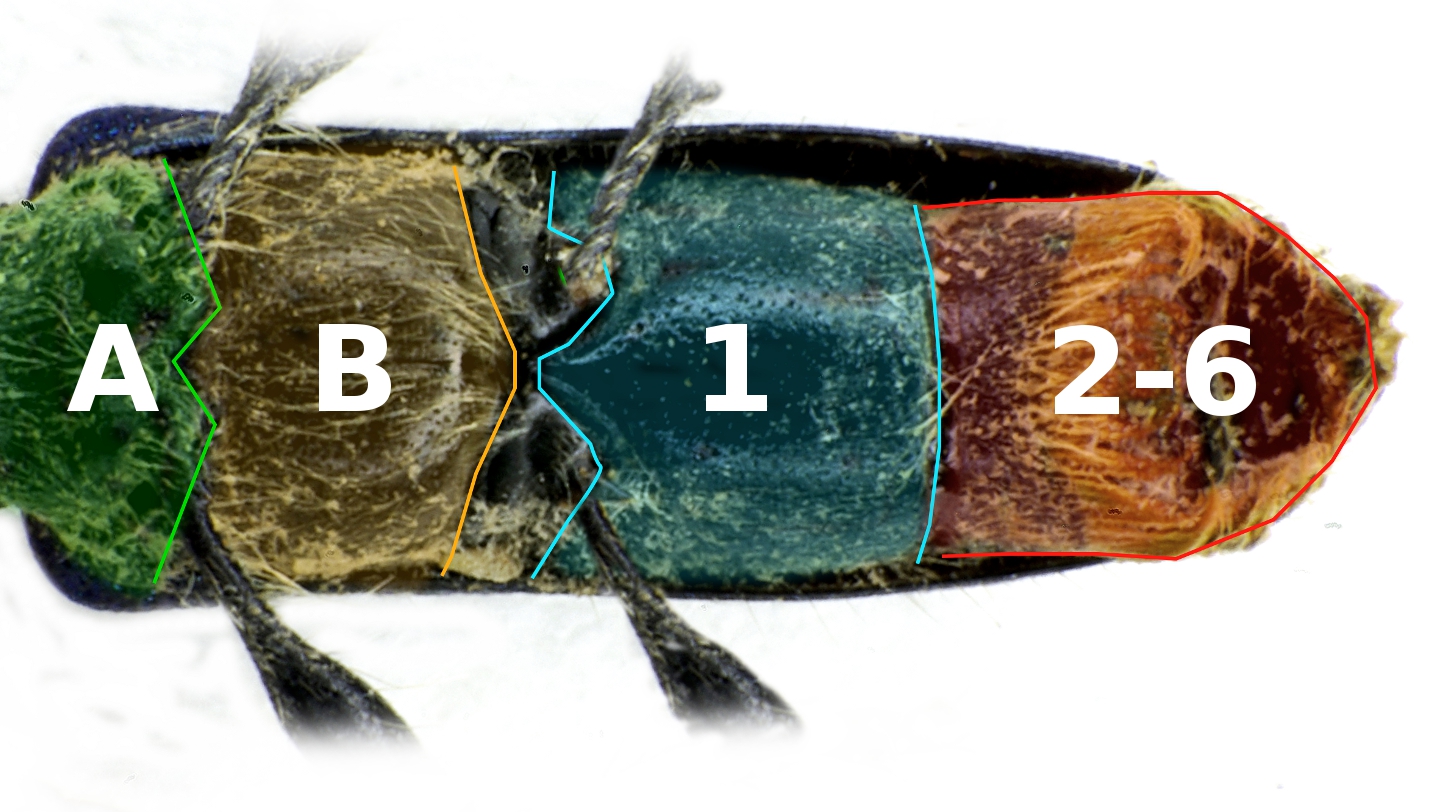Sternum (arthropod) on:
[Wikipedia]
[Google]
[Amazon]
 The sternum (: sterna) is the ventral portion of a segment of an
The sternum (: sterna) is the ventral portion of a segment of an
 The sternum (: sterna) is the ventral portion of a segment of an
The sternum (: sterna) is the ventral portion of a segment of an arthropod
Arthropods ( ) are invertebrates in the phylum Arthropoda. They possess an arthropod exoskeleton, exoskeleton with a cuticle made of chitin, often Mineralization (biology), mineralised with calcium carbonate, a body with differentiated (Metam ...
thorax
The thorax (: thoraces or thoraxes) or chest is a part of the anatomy of mammals and other tetrapod animals located between the neck and the abdomen.
In insects, crustaceans, and the extinct trilobites, the thorax is one of the three main di ...
or abdomen
The abdomen (colloquially called the gut, belly, tummy, midriff, tucky, or stomach) is the front part of the torso between the thorax (chest) and pelvis in humans and in other vertebrates. The area occupied by the abdomen is called the abdominal ...
.
In insect
Insects (from Latin ') are Hexapoda, hexapod invertebrates of the class (biology), class Insecta. They are the largest group within the arthropod phylum. Insects have a chitinous exoskeleton, a three-part body (Insect morphology#Head, head, ...
s, the sterna are usually single, large sclerites, and external. However, they can sometimes be divided in two or more, in which case the subunits are called sternites, and may also be modified on the terminal abdominal segments so as to form part of the functional genitalia, in which case they are frequently reduced in size and development, and may become internalized and/or membranous. For a detailed explanation of the terminology, see
Kinorhynchs have tergal and sternal plates too, though seemingly not homologous with those of arthropods.Sørensen, M. V. et al. Phylogeny of Kinorhyncha based on morphology and two molecular loci. PLoS One 10, 1–33 (2015).
Ventrites are externally visible sternites. Usually the first sternite is covered up, so that ventrite numbers do not correspond to sternite numbers.
The term is also used in other arthropod groups such as crustaceans, arachnid
Arachnids are arthropods in the Class (biology), class Arachnida () of the subphylum Chelicerata. Arachnida includes, among others, spiders, scorpions, ticks, mites, pseudoscorpions, opiliones, harvestmen, Solifugae, camel spiders, Amblypygi, wh ...
s and myriapods. Sternites on the pleon (abdomen) of a crustacean may be referred to as pleonsternites. These are the sites of attachment of the pleopods (swimming legs). In spider
Spiders (order (biology), order Araneae) are air-breathing arthropods that have eight limbs, chelicerae with fangs generally able to inject venom, and spinnerets that extrude spider silk, silk. They are the largest order of arachnids and ran ...
s, the sternum is the ventral part of the cephalothorax.
See also
TergiteReferences
{{reflist Arthropod anatomy